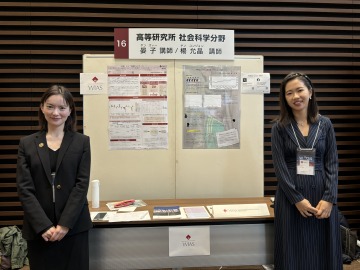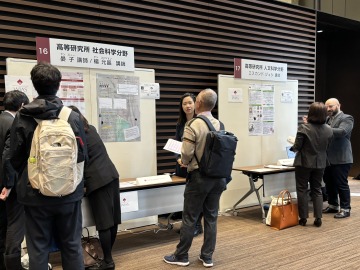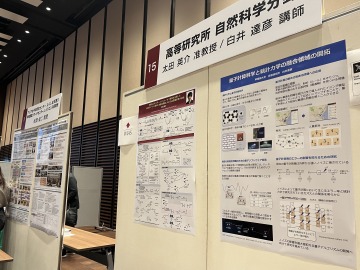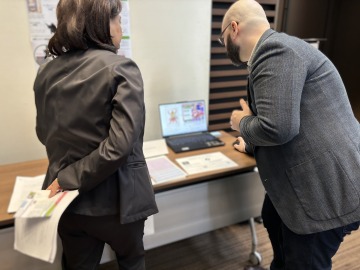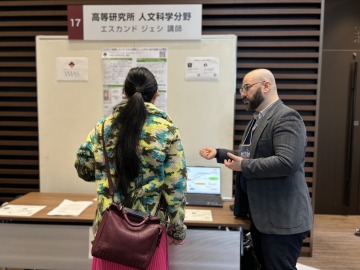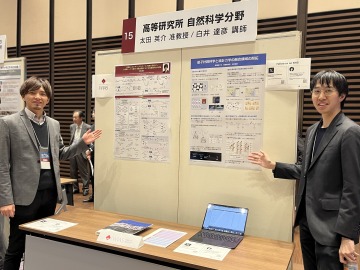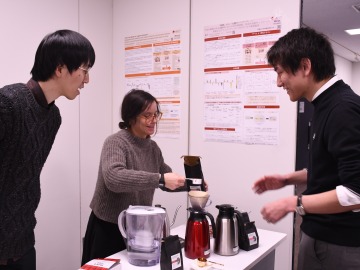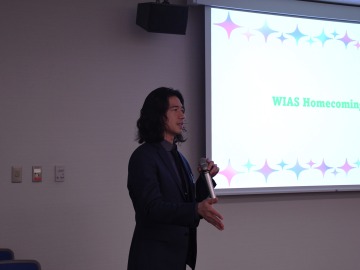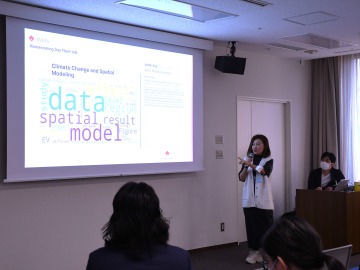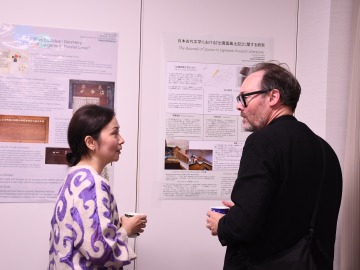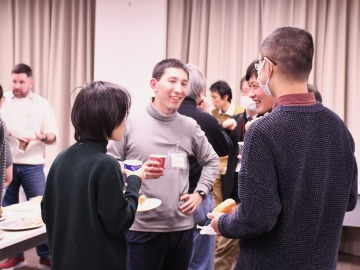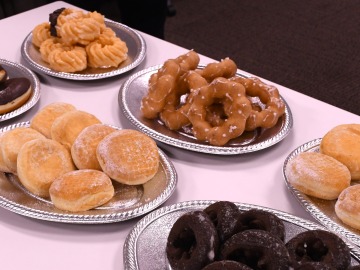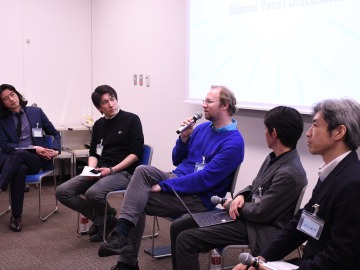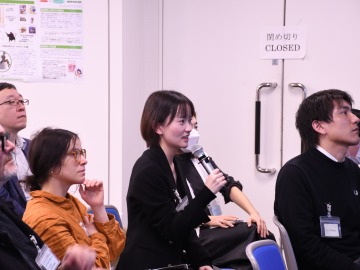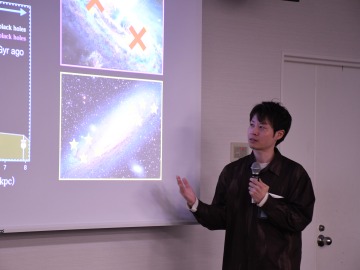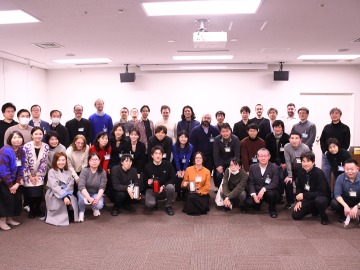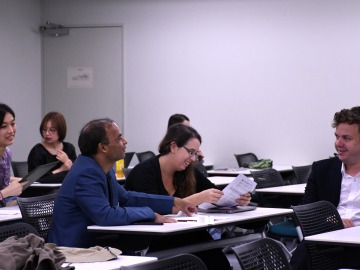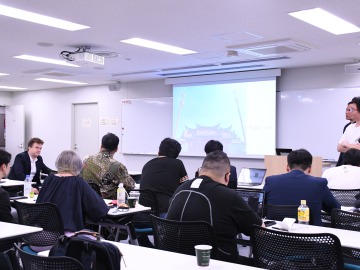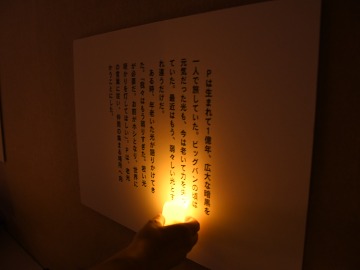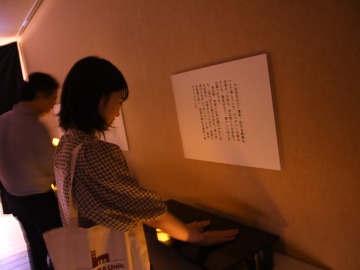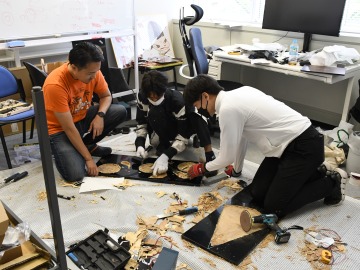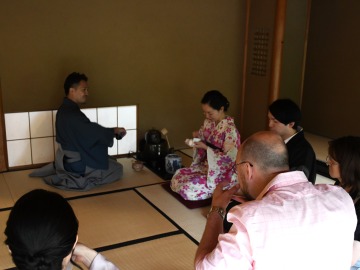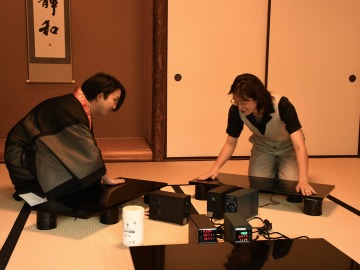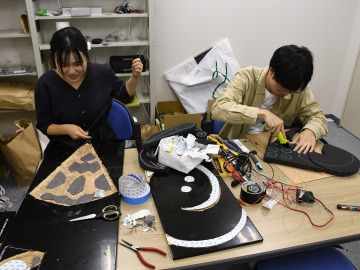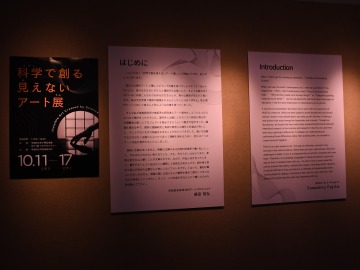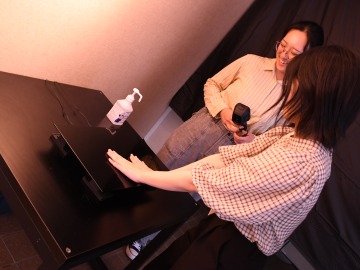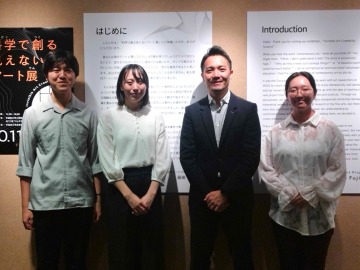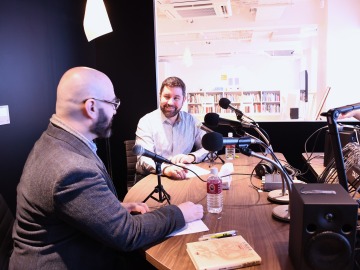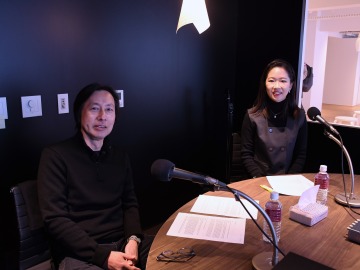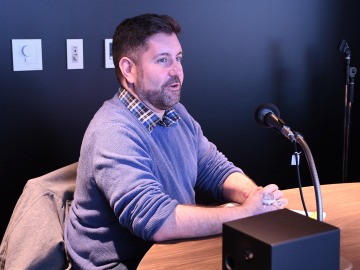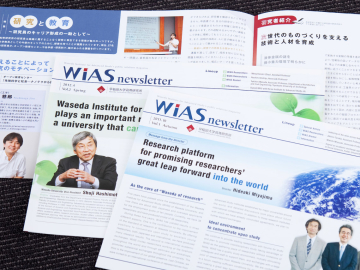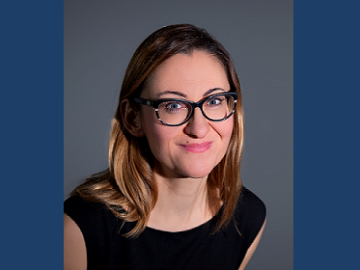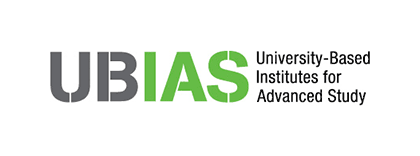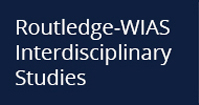Index
- Introducing the new WIAS director and associate directors
- Exhibits at Waseda Open Innovation Forum 2024 (WOI’24)
- WIAS Homecoming Day
- International Conference: Diversity and Liberty in East Asia: Historical Development and Contemporary Significance (Dr. HUNG Tak Wai)
- Exhibits at WASEDA University CULTURE & ART WEEK 2024: “Invisible Art Created by Science”
- WIAS researchers show up on the Waseda University Podcasts: Rigorous Research, Real Impact
- Network Research Visits program with partner institution ZUKO and AIAS
- Information
Introducing the new WIAS director and associate directors
The following three individuals were appointed in September 2024 as Director and Associate Director, creating a new structure at the Institute.
Director Atsushi Takeuchi (Professor, School of Science and Engineering)
Associate Director Katsuyuki Kubo (Professor, School of Commerce)
Associate Director Tomoyasu Iiyama (Professor, School of Letters, Arts and Sciences)
The Waseda Institute for Advanced Study (WIAS) was established in September 2006 as an independent institute outside the existing faculties of the University. Since its inception, WIAS has been serving as an active matrix in which next generation leading researchers can conduct creative advanced research on a wide range of themes, beyond the constraints of conventional fields such as the humanities, social sciences and natural sciences. Within the new system, WIAS will continue making efforts in its established areas of endeavor, including the provision of opportunities for young researchers to develop in an atmosphere of friendly competition; collaboration with on-campus faculty members; the hosting of overseas researchers; and the promotion of interdisciplinary research projects.
Message from Director Atsushi Takeuchi
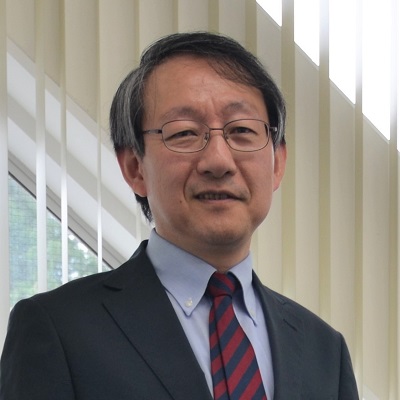
The Waseda Institute for Advanced Study (WIAS) was established in 2006 with the goals of nurturing early career researchers, pioneering cutting-edge research fields, improving the university’s research capabilities through active exchange with overseas researchers, and building an international research network. WIAS employs some 10 early career researchers every year, all of whom have received fixed-term appointments. We also have invited more than 20 overseas researchers a year as visiting researchers or scholars. We are committed to human and academic exchange with member institutes of the University-Based Institute for Advanced Study (UBIAS), a worldwide network of university-based research institutes with whom we share common ideals and objectives. In order to realize President Aiji Tanaka’s vision of “WASEDA shining on the world stage,” we will further improve the quality of research and education, attract excellent human resources from around the world, and nurture the next generation of brilliant researchers.
Message from Associate Director Katsuyuki Kubo
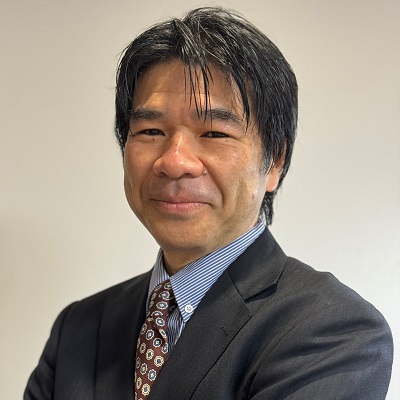 The significance of interdisciplinary research has been acknowledged for years, but fostering collaboration across diverse fields has often presented challenges. Recently, however, I have observed a positive shift in this regard. One key driver of this transformation is the growing convergence of data analysis methodologies across disciplines. Traditionally, fields like economics, business management, and epidemiology have relied on distinct research methods. Now, widely applicable techniques such as causal inference are gaining traction across these and other areas, fostering greater synergy. Moreover, there is an increasing reliance on unconventional data sources, often referred to as alternative data, previously outside academic research’s scope. Examples include corporate transaction data, satellite imagery, and human mobility data. These data types are now substantially contributing to academic progress across various fields. I am confident that interdisciplinary research leveraging these innovative data sources will continue to expand and flourish. At WIAS, we are committed to becoming a pioneering platform for advancing such interdisciplinary endeavors, driving innovation and collaboration in research for years to come.
The significance of interdisciplinary research has been acknowledged for years, but fostering collaboration across diverse fields has often presented challenges. Recently, however, I have observed a positive shift in this regard. One key driver of this transformation is the growing convergence of data analysis methodologies across disciplines. Traditionally, fields like economics, business management, and epidemiology have relied on distinct research methods. Now, widely applicable techniques such as causal inference are gaining traction across these and other areas, fostering greater synergy. Moreover, there is an increasing reliance on unconventional data sources, often referred to as alternative data, previously outside academic research’s scope. Examples include corporate transaction data, satellite imagery, and human mobility data. These data types are now substantially contributing to academic progress across various fields. I am confident that interdisciplinary research leveraging these innovative data sources will continue to expand and flourish. At WIAS, we are committed to becoming a pioneering platform for advancing such interdisciplinary endeavors, driving innovation and collaboration in research for years to come.
Message from Associate Director Tomoyasu Iiyama
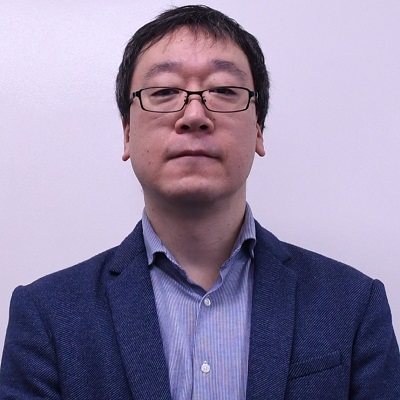 From 2012 to 2015, I was affiliated with the Waseda Institute of Advanced Study (WIAS) as a researcher, but I had not imagined that I would return as an Associate Director. Both then and now, it has never been easy to obtain a position at a university or an academic institution to continue research projects in the field of premodern history. During my three years at WIAS, I was able to concentrate on my research, publish my work, conduct fieldwork, and participate in conferences without any restrictions. This helped me establish a solid foundation that eventually facilitated the acquisition of my current position. During three years at WIAS I was constantly inspired by my colleagues, who were engaged in diverse fields of study, and have continued to stay in touch with me to this day. Based on this personal experience, I strongly believe that my most important duty as an Associate Director is to provide the kind of research environment that will enable WIAS researchers to make even greater strides.
From 2012 to 2015, I was affiliated with the Waseda Institute of Advanced Study (WIAS) as a researcher, but I had not imagined that I would return as an Associate Director. Both then and now, it has never been easy to obtain a position at a university or an academic institution to continue research projects in the field of premodern history. During my three years at WIAS, I was able to concentrate on my research, publish my work, conduct fieldwork, and participate in conferences without any restrictions. This helped me establish a solid foundation that eventually facilitated the acquisition of my current position. During three years at WIAS I was constantly inspired by my colleagues, who were engaged in diverse fields of study, and have continued to stay in touch with me to this day. Based on this personal experience, I strongly believe that my most important duty as an Associate Director is to provide the kind of research environment that will enable WIAS researchers to make even greater strides.
Introduction of our activities
1. Exhibits at Waseda Open Innovation Forum 2024 (WOI’24)
The Waseda Open Innovation Forum 2024 was held on November 21 (Thu.) , 2024. Three booths were set up for exhibits from WIAS, and the following researchers introduced the latest research outcomes.
Theme: The cutting edge of future technologies pioneered by quantum computing and organic synthetic chemistry
- Associate Professor OTA Eisuke “Reverse regioselectivity in the C-O bond cleavage of small ring ethers enabled by zirconocene and photoredox catalysis”
- Assistant Professor SHIRAI Tatsuhiko “Statistical mechanics meets quantum computation: A new frontier”
Theme: Social science perspectives on global issues facing the world
- Assistant Professor YAN Zi “From ‘care dyads’ to ‘support networks’: Intergenerational solidarity, social support networks, and purchase intention for home- and community-based service of impaired older adults in China”
- Assistant Professor YANG Yun Jung “Human rights violations in conflict zones: considering issue of child soldiers “
Theme: On the Necessity of Humanities-Industry Collaboration in Addressing ‘Cultural Appropriation’ within the Japanese Content Industry
- Assistant Professor ESCANDE Jessy “On the Necessity of Humanities-Industry Collaboration in Addressing ‘Cultural Appropriation’ within the Japanese Content Industry”
Throughout the event, a total of approximately 60 people, including those from general companies, researchers, and students visited the booths. We received very positive comments from the researchers who conducted the booth exhibition, including a remark such as, “There were more people than I had expected who were interested in my research and stopped by my booth, which motivated me to do more research and presentations in the future.”
For those who stopped by, thank you very much for visiting and participating.
The Waseda Open Innovation Forum 2024 report is also posted on the Waseda University website.
知の実装を加速する、共創の場 – 早稲田大学 (waseda.jp)
2. WIAS Homecoming Day
Waseda Institute for Advanced Study (WIAS) held our second Homecoming Day Event on January 11, 2025. The following is the report from Assistant Professor OMINATO Yuya, who contributed to this event as a member of WIAS’ Chief Secretaries.
WIAS’s second Homecoming Day event was held on January 11, 2025. The purpose of Homecoming Day is to build a network between current researchers (current members) and alumni (former members) of the institute. This year, programs were planned and implemented to facilitate interactive communication in each session. As a result, active discussions were held on a wide range of topics, including lab management, career development, and interdisciplinary exchange, allowing for successful networking with researchers from various fields.
This year’s Homecoming Day contents were proposed by WIAS Chief Secretaries. Dr. Hung Shao-Min (Humanities) suggested a program that would encourage participants to easily connect with one another. The event featured flash talks, where current members introduced their research briefly, and alumni panel discussion, where three representatives from the alumni were interviewed with various questions related to research. During the initial planning phase, Dr. Yuko Sato (Social Sciences), who was a member at the time, contributed many ideas, and once the overall direction was decided, Dr. Ling Liu (Social Sciences) joined the team. To make the coffee breaks between sessions enjoyable, Dr. Yuya Ominato (Natural Sciences) focused on preparing sweets and coffee. Under the cooperation of the WIAS office staff and WIAS Events Committee members, the Chief Secretaries coordinated closely to prepare for the event.
The event began in the meeting room on the second floor of Okuma Kaikan with opening remarks by the Chief Secretaries, followed by the first round of flash talks. Current WIAS members, Dr. Robert Fahey, Dr. Jing Kang, Dr. Osman Sabri Kiratli, and Dr. Jessy Escande conducted concise research presentations, each consisting of a 5-minute talk and a 5-minute Q&A session. The Q&A sessions saw lively discussions, and the flash talks proved highly effective in fostering connections.
Following the talks, we moved to the first coffee break which provided a relaxed atmosphere where participants enjoyed coffee and sweets while engaging in casual interactions.
The alumni panel discussion featured Dr. Shinsuke Suzuki (Professor, Faculty of Science and Engineering, Waseda University), Dr. Akihiro Tanaka (Professor, Department of Psychology, Tokyo Women’s Christian University), and Dr. Christoph Rademacher (Professor, Faculty of Law, Waseda University). They were asked a wide range of questions by current members about research life, offering insightful and valuable perspectives. After another coffee break, the second round of flash talks took place with presentations by Dr. Rhythm Shimakawa, Dr. Tatsuhiko Shirai, Dr. Yun Jung Yang, and Dr. Tony Cheng, following the same format as the first session. Other than the flash talks, poster presentations were displayed in the venue.
The event concluded with closing remarks by WIAS Director Professor Atsushi Takeuchi, marking the end of all sessions.
Afterwards, a standing buffet party was held which started with a toast by former WIAS Director Professor Ken-ichi Akao. Participants deepened their connections while enjoying food and drinks. Finally, the event concluded with a summary comment by WIAS Adviser Professor Hideaki Miyajima (Executive Vice President for Financial Affairs, Waseda University).
Homecoming Day proved to be a highly effective opportunity to deepen the connections between current members and alumni. The emphasis on planning to promote interaction throughout the event paid off. Broad networking not only broadens research perspectives but also plays a vital role in securing positions as researchers.
Although Homecoming Day is still a relatively young event, being only its second iteration, its continued development is expected to further refine its content.
Lastly, we would like to express our heartfelt gratitude to everyone involved. The event was made possible through the cooperation of researchers, administrative staff, and event staff, resulting in a truly remarkable occasion. We extend our sincere thanks once again.
Event website
WIAS Homecoming Day (*Event held on Jan. 11, 2025)
3. International Conference: Diversity and Liberty in East Asia: Historical Development and Contemporary Significance (Dr. HUNG Tak Wai)
The international conference, “Diversity and Liberty in East Asia: Historical Development and Contemporary Significance,” was held from 26th to 28th September 2024 at Waseda University and online. Here is the report form Assistant Professor HUNG Tak Wai, the host of the symposium.
This event brought together scholars from across the globe to discuss how the concepts of diversity and liberty have shaped East Asia historically and continue to influence its contemporary societal and cultural landscapes. By fostering interdisciplinary dialogue, the conference aimed to deepen understanding of these pivotal values in an East Asian context, exploring their unique trajectories and manifestations beyond Western paradigms.
Organised by the Waseda Institute for Advanced Studies (WIAS) and supported by the Lee Tung Hui Foundation, 1841 Press, and Photonmedia the conference featured a robust lineup of keynote speeches, thematic panels, and lively discussions. The event highlighted the richness and complexity of diversity and liberty in East Asia through historical, sociological, political, and cultural lenses.
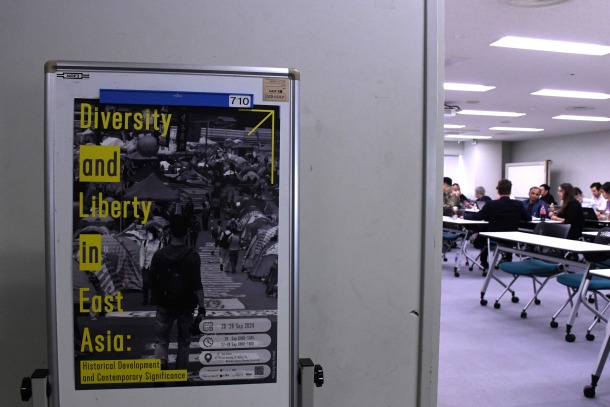
The conference opened with a keynote address by Dr. Lian Yi-zheng (Associate Dean (Retired), School of Business and Management, The Hong Kong University of Science and Technology), who explored the theme of “Hierarchical Differentiation as Impedance on Democracy,” drawing insights from historian T. T. Meadows. This thought-provoking session set the stage for the panels that followed, which examined diverse themes such as the role of liberty in 20th-century East Asia, the dynamics of social movements, and the impact of cultural translations on artistic expressions.
On the second day, Dr. Cheng Mu-chun (Cheif Executive Officer, Lee Teng-hui Foundation) delivered a keynote on “Stepping out of White Terror: How Taiwan Constructs a Pluralistic Society since President Lee Teng Hui,” offering a comprehensive analysis of Taiwan’s journey towards a more inclusive and democratic society. Subsequent panels explored cultural and spiritual identity formation, gender and family dynamics, and reinterpretations of classical Asian texts.
The third day featured a keynote by Dr. Cheung Chan-fai (Professor and Chairman(Retired), Department of Philosophy,The Chinese University of Hong Kong), reflecting on “Intellectuals in Hong Kong under the White Terror,” followed by panels that delved into ideologies, state power, and the diaspora’s influence on political engagement. Notable presentations included discussions on the Milk Tea Alliance, Hong Kong’s migrant communities, and the legacy of East Asian activism in the 2010s.
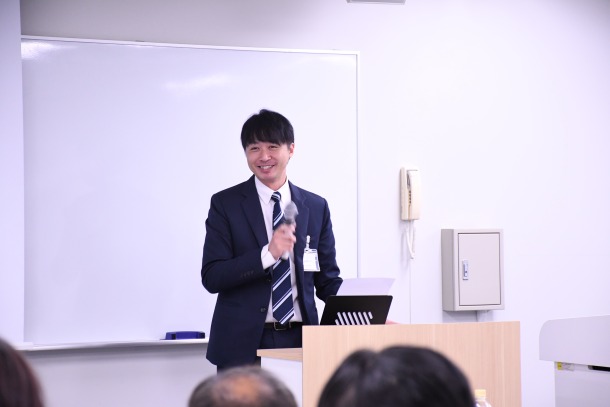
The conference brought together over 200 participants, including scholars, graduate students, and policymakers from diverse disciplines such as history, political science, sociology, and religious studies. Presenters hailed from institutions in East Asia (Japan, Taiwan, Hong Kong, South Korea, Malaysia, and the Philippines), Europe (Germany, Italy, and the United Kingdom), and North America (the United States and Canada), underscoring the event’s international reach.
The discussions fostered new academic collaborations and illuminated East Asia’s unique approaches to diversity and liberty. Key themes included the integration of Western ideas, the influence of traditional values, and the region’s contributions to global discourses on inclusivity and freedom. The focus on underrepresented topics such as LGBTQ+ rights, gender equity, and interfaith relations enhanced the conference’s inclusivity and relevance.
The conference’s proceedings will be compiled into a post-event publication supported by the Lee Tung Hui Foundation, providing a valuable resource for scholars and policymakers. By amplifying East Asian perspectives on diversity and liberty, the event marked a significant step toward de-Westernising global academic discourse and promoting a nuanced understanding of these values in a regional context.
Event website
https://www.waseda.jp/inst/wias/news-en/2024/09/17/16446/
4. Exhibits at WASEDA University CULTURE & ART WEEK 2024: “Invisible Art Created by Science”
As part of “WASEDA University CULTURE & ART WEEK 2024,” we held the exhibition “Invisible Art Created by Science: Produced by the Institute for Advanced Study” from October 10 to October 17. Below is a report from Lecturer FUJITA Tomohiro (Faculty of Core Research Natural Sciences Division, Ochanomizu University), WIAS Alumnus and the organizer. This exhibition served as an opportunity to present contemporary artworks produced through the Institute for Advanced Study research project, “Intermediate approach of basic science and contemporary art in 2020s.”
The first basement floor of Waseda University’s Building 27 has a spacious exhibition area known as the Waseda Gallery. During the exhibition period, the room was enclosed by heavy black curtains, forming a darkroom approximately 20 square meters in size. A flickering candle faintly illuminated the panels on the walls and the floor. One panel depicted the story of the birth of a star, while the opposite panel narrated the death of stars. In front of each panel were three black lacquer boards. Though described as art, the boards appeared to have no visible patterns. Upon being prompted to touch them, however, one could feel warmth in certain spots. It seemed the artwork used temperature to depict images—this was the essence of our exhibition. Had I been the scientifically oriented person I once was, I might have glanced at this peculiar creation, thought “Waseda researchers make strange things,” and left without giving it much thought. However, during the week-long exhibition, 159 visitors experienced the artwork, and many appeared to genuinely enjoy it.
In 2022, a new WIAS research project was launched to create art through the fusion of science and art research. Through extensive discussions with team members, especially Professor Naoko Seki (Faculty of Letters, Arts and Sciences, Waseda University) and Assistant Professor Nastuko Kuwabara (WIAS, Waseda University), we explored the direction of the project. At the time, the world had become contactless during the COVID-19 pandemic, so we decided to create an artwork that could only be appreciated through touch. We decided on the concept of the piece drawing inspiration from Japanese art, such as adopting the format of a picture scroll read from right to left. As an astronomer, I added the theme of art for extraterrestrials. The temperature-based images could be visually appreciated by extraterrestrial beings capable of seeing infrared, while humans could appreciate them through touch. This concept aimed to create art that could be enjoyed regardless of the planet one originated from.
On July 18, 2023, the first work was unveiled in the format of a tea ceremony. With less than a month to prepare, we worked with students to create the piece, but it was all trial and error. Since the lacquer boards were too slippery to machine-carve, we resorted to traditional methods using chisels and mallets. The tea ceremony exhibition was well received, but as the organizer, I felt strongly that I wanted the next exhibition to focus solely on art. Among the feedback we received, Assistant Professor Shao-Min Hung (WIAS, Waseda University), a specialist in cognitive neuroscience, made a particularly valuable comment: “I first realized that the ongoing visual input could disturb my tactile exploration. […] So I closed my eyes during the interaction with the artwork.” This observation proved to be a significant hint for our next steps.
Later, we finally decided to hold an exhibition during Waseda Arts and Culture Week in the fall of 2024. During the trial-and-error process of preparing for a full-scale exhibition, I took three student staff members to experience “Dialogue in the Dark” during the summer vacation which had a great impact on us. This experience, in which participants were guided by visually impaired staff to explore a summer festival in complete darkness, inspired the concept of a darkroom exhibition. This time, students from outside Waseda University also joined the project team, and we managed to complete the preparations just in time. Thanks to the students’ efforts, every aspect of the project—from poster design to venue layout, lighting, explanatory panels, and the artwork itself—was completed with a quality far beyond my imagination.
During the exhibition, I spent as much time at the venue as my schedule allowed, and I was delighted to hear the genuine reactions of the visitors—whether they were purely intrigued by the work or resonated with its concept. Some students even asked which courses they could take to participate in our projects. The large sheet of paper we prepared for visitors as a forum to share their thoughts became covered with sticky notes, giving me a strong sense of achievement though we had only a week to exhibit.
Through this project, I gained the invaluable experience of creating and exhibiting an artwork. I am deeply grateful to all the members of the research project, the students who assisted with the event, and the WIAS office. I would especially like to thank Professors Satomi Yamamoto (Faculty of Letters, Arts and Sciences, Waseda University) and Naoko Seki, Assistant Professor Natsuko Kuwabara, and Waseda University students Sachiko Shibayama, Masanori Oiwa, and Hanae Fujimura for their exceptional support. While it’s gratifying that this interdisciplinary project between the arts and sciences achieved a certain level of success, I also reflect on how I ended up taking on too much on my own toward the end. Building on this experience, I hope to see even more innovative projects emerge from WIAS.
Event website (in Japanese)
https://www.waseda.jp/inst/wias/news/2024/10/08/16475/
5. WIAS researchers show up on the Waseda University Podcasts: Rigorous Research, Real Impact
WIAS researchers show up on the Waseda University Podcasts: Rigorous Research, Real Impact and share their research interests as guests or host Waseda University’s researchers as MCs.
Folloing is the detail of each episode.
・Episodes where WIAS members show up
(1) Associate Professor KELLAM Marisa (Faculty of Political Science and Economics) & Assistant Professor FAHEY Robert Andrew (WIAS)
“Democratic Backsliding and the Role of Populism” *Released on Dec. 3, 2024: details
(2) Assistant Professor ESCANDE Jessy (WIAS) & Assistant Professor FAHEY Robert Andrew
“Cross-Cultural Influences in Japanese Fantasy Games” *Released on Dec. 17, 2024: details
(3) Professor KUBOTA Takashi (Faculty of Law) & Assistant Professor FAHEY Robert Andrew
“Central Bank Digital Currencies from a Japanese Legal Perspective” *Released on Jan. 7, 2025: details
(4) Professor FARRER Gracia Liu (Faculty of International Research and Education) & Assistant Professor FAHEY Robert Andrew
“Rethinking Skilled Migration” *Released on Jan. 21, 2025: details
(5) Professor YOSHIKAWA Toru (Faculty of Social Sciences) & Assistant Professor YANG Yun Jung (WIAS)
“Ensuring Gender Diversity in Executive Management Positions” *Released on Feb. 4, 2025: details
(6) Assistant Professor FAHEY Robert Andrew (WIAS) & MARCANTUONI Romeo (Ph.D. Candidate, Graduate School of Asia Pacific Studies)
“Unlocking the Rise of Conspiracy Movements in Japan” *Released on Feb. 17, 2025: details
6. Network Research Visits program with partner institution ZUKO and AIAS
(1) ZUKO and WIAS Network Research Visits program report
Assistant Professor HUNG Shao-Min from WIAS visited ZUKO (Zukunftskolleg at the University of Konstanz, Germany) for the second round of the two institutes’ research exchange program. He shared his thoughts and experience during his stay.
- Assistant Professor HUNG Shao-Min
Report #01~#02
(2) AIAS and WIAS Network Research Visits program report
WIAS sent two researchers for WIAS and AIAS (Aarhus Institute of Advanced Studies, Aarhus University, Denmark) reciprocal exchange program for the first time. Followings are reports of their collaborative research stay.
- Assistant Professor ANDASSOVA Maral
Report #01~#02 - Assistant Professor LE Duc Dung
Report #01~#03
Information
WIAS invites outstanding overseas researchers who are active internationally, and contributes to the energizing of research activities at Waseda University through academic exchanges and seminars between our researchers and the invitees. Click here for more information.
Visiting Researchers
- August 1 – August 31, 2024
ZIELINSKA Teresa
Full Professor, Warsaw University of Technology (Poland)
- October 1 – October 31, 2024
PERNICE Raffaele
Senior Lecturer, University of New South Wales (Australia)
- October 1 – October 31, 2024
KAFFEN Philip
Associate Professor, University of North Carolina (USA)
- October 11 – November 10, 2024
MORRISON Michele
Senior lecturer, University of Waikato (New Zealand)
- November 15 – December 15, 2024
VERMEULEN Dries
Professor, Maastricht University (Netherlands)
- November 19 – December 19, 2024
WILLINGER Marc
Professor, University of Montpellier (France)
- January 4 – February 3, 2025
KIM Sunghoon
Associate Professor, The University of Sydney (Australia) - February 3, 2025 – March 5, 2025
VU Anh Nguyet
Senior Lecturer (Associate Professor), University of Sussex (UK)
Visiting Scholars
- December 2 ,2024– January 2, 2025
VEGH WEIS Valeria
Researcher, Universität Konstanz (German)
- January 13– March 13, 2025
LEE Pui Tak
Distinguished Professor, Huaqiao University (China)
We welcome your comments and suggestions. Please contact us at the coordinates below.
Waseda Institute for Advanced Study (WIAS)
1st floor, Nishi-Waseda Bldg.
1-21-1 Nishi Waseda, Shinjuku-ku, Tokyo 169-0051, JAPAN
URL:https://www.waseda.jp/inst/wias/en/
TEL:03-5286-2460
FAX:03-5286-2470
E-mail:[email protected]

